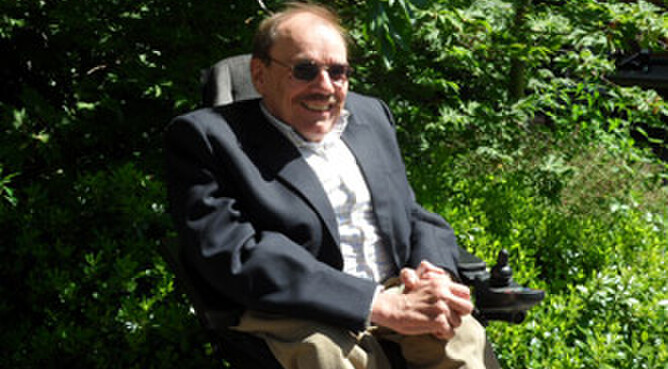Sir Bert Massie is one of the UK?s foremost disability rights leaders and activists. His influential career has included leading RADAR (the Royal Association for Disability Rights) as CEO and Chairing the Disability Rights Commission from 2000 to 2007.
Describe yourself in a sentence
An ageing disability activist who fears that the equality successes of the past might be undermined in the future, thus placing disabled people at a further disadvantage.
What role has equality played in your life?
Equality has played a large part in my life. It is always been evident to me that disabled people experience disproportionate discrimination. During my time at RADAR (now Disability Rights UK) I was involved in the battle for the Disability Discrimination Act and worked with disabled people, government and others for a better and more accessible transport system and access to the built environment, amongst other topics. In 2000 I became chairman of the Disability Rights Commission (DRC) where I remained until it was incorporated into the Equality and Human Rights Commission (EHRC) in 2007. It is important that disabled people are able to enforce our rights through the courts if necessary. It is sad that the EHRC is now so weakened that disabled people lack the support they had in the days of the DRC.
I first joined campaigning disability organisations in the 1960s. At that time there were no specific social security benefits for disabled people. After much campaigning they were introduced from the 1970s onwards. The Chronically Sick and Disabled Persons Act 1970 improved social care for disabled people and also introduced what is now the Blue Badge Scheme. It was the first major legislation specifically concerning disabled people since the 1940s. Although it introduced the concept of an accessible buildings in this part of the Act proved ineffective. Changes to building regulations have to wait until the mid-1980s. The foundations of accessible transport were also laid in the 1980s. The 1980s also saw the blossoming of the disability movement and a greater determination by disabled to influence the environment in which we lived and to design the services we used.
What advantages would more equality bring the UK?
Effective equality legislation and practice could do a great deal to promote greater inclusion of disabled people. The scale of how much there is still to do is all around us. Too many buildings remain inaccessible to people with mobility impairments. People who are deaf or blind still face communication difficulties and far too little information is available in suitable formats for people with learning disabilities. People with mental health issues receive inadequate support. The rate of unemployment amongst disabled people has increased since 2007. However, there are limits to equality legislation. For example, the severe reductions the government is making to disability benefits is not influenced by equality legislation. Disabled people are experiencing significant difficulties in the fields of health and social care. Although equality legislation and practice has a role it is perhaps not a significant as the role of human rights. We should be pressing for all disability services to be based on human rights principles. This would of course also apply to any public services that disabled people use such as health and social care.
Describe any important turning points for you.
I am not sure I can identify specific turning points. Mostly the battle for human and civil rights is a long unceasing road with many blockages along the way. I suspect persistence and stamina are key ingredients. It is possible to identify legislative landmarks but even some of these prove illusory in the longer term.
What helps inspire you?
Mostly other people. I have been privileged to know and work alongside a large number of remarkable people both disabled and non-disabled.
If you could give your younger self advice, what would it be?
A world in which disabled people enjoy full civic and human rights will only be achieved if a new generation of campaigners decide to devote their energies to achieving this outcome. My advice would be to choose battles carefully, plan strategies diligently and pursue them fearlessly and relentlessly. Never underestimate your opponents. Learn their strengths and how you can overcome them.
